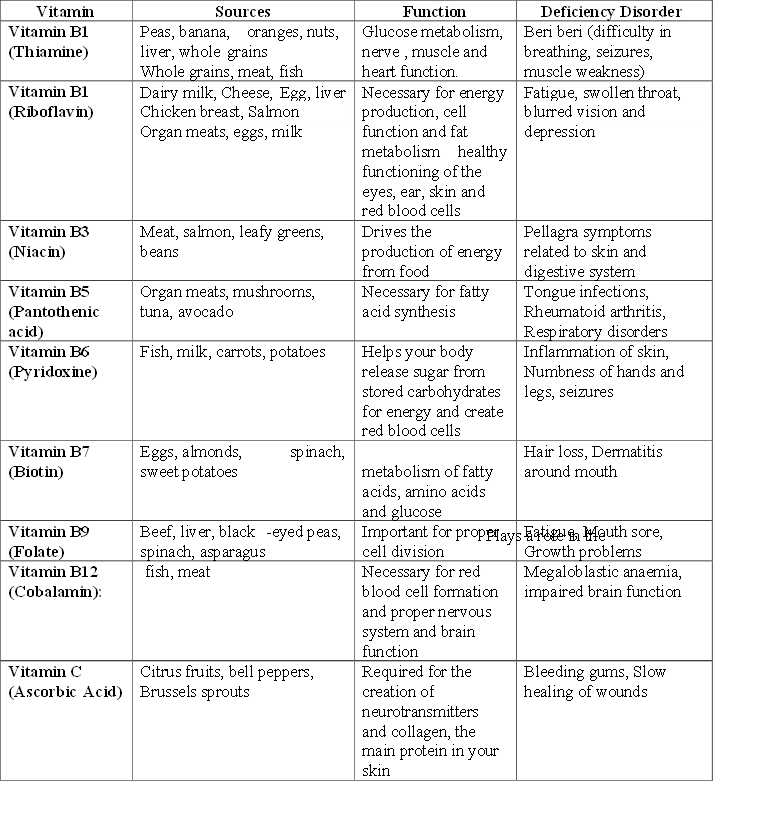Nutrition is the process of obtaining nutrients by consuming food for growth, maintenance and overall health. Good nutrition is essential for overall development of body, maintaining optimal health and thereby preventing diseases. It involves making informed choices about food we eat and understanding the impact of different nutrients.
Macro nutrients:
Nutrients that are required by the body in greater amounts are known as macro-nutrients. They are required for different metabolic activities, to provide energy and support growth and development of the body.
Carbohydrates, Fats, and Proteins are the primary macronutrients
Carbohydrates are the main source of energy. They are called energy producers. They are broken into glucose which the cells use as fuel to carry out their respective functions.
Fruits, Vegetables, Grains and Legumes are the sources of carbohydrates.
If the intake of carbohydrates is not adequate it causes weakness and fatigue.
Proteins are essential for building and repair of tissues, producing enzymes and hormones and very essential for immune system function. They are called body builders.
Meat, poultry, fish, dairy products, nuts, legumes and seeds are good sources of protein.
Protein deficiency results in impaired immune function, muscle wasting and stunted growth in children.
Fats are important for energy storage. They are necessary for brain development and energy.
Oil, butter, seeds, nuts, Avocados, fatty fish (rich in omega-3 fatty acids) and dairy products are good sources of fats.
Deficiency can lead to dry skin, poor wound healing and difficulty in maintaining body temperature.
Micronutrients:
Our body needs smaller amounts of micronutrients compared to macronutrients. Micronutrients are one of the major groups of nutrients our body needs. They are very important for the metabolic activities of the body. They include minerals and vitamins. They are vital for growth, immune function, brain development and many other important functions of the body.
Vitamins are organic compounds made by plants and animals which can be broken down by heat, acid or air. On the other hand, minerals are inorganic, exist in soil or water and cannot be broken down.
Vitamins: Are categorised into water- soluble and fat-soluble vitamins.
Water Soluble vitamins:
Vitamins that dissolve in water are known as water-soluble vitamins. They’re not stored in your body and get flushed out with urine when consumed in excess. Since these vitamins are not stored in your body, it’s important to get enough of them from food. Vitamin B and Vitamin C are Water Soluble vitamins.

Fat-Soluble Vitamins
These vitamins do not dissolve in water. These are stored in the liver and fatty tissues for future use. Vitamins A, D, E, and K are important fat-soluble vitamins. They play a major role in the proper functioning of the immune system, proper bone development, proper vision, and protection of cells from damage. They’re best absorbed when consumed alongside a source of fat.

Minerals:
Minerals are divided into macrominerals ( needed in larger amounts) and trace minerals (needed in smaller amounts than macrominerals).


A balanced, nutrition-rich diet is very much essential for normal functioning, healthy body and disease prevention. A balanced diet includes a variety of foods from different food groups such as carbohydrates, fat, protein, vitamins, minerals, and roughage to ensure that the body receives adequate nutrients for optimal health and functioning. All nutrients are extremely important for the proper functioning of the body. Consuming an adequate amount of the different nutrients is key to optimal health and also even help fight disease. Micronutrients are part of nearly every process in your body. Certain vitamins and minerals can act as antioxidants. Antioxidants may protect against cell damage that has been associated with certain diseases, including cancer, Alzheimer’s, heart disease, etc.
Eat wise, Stay healthy!


